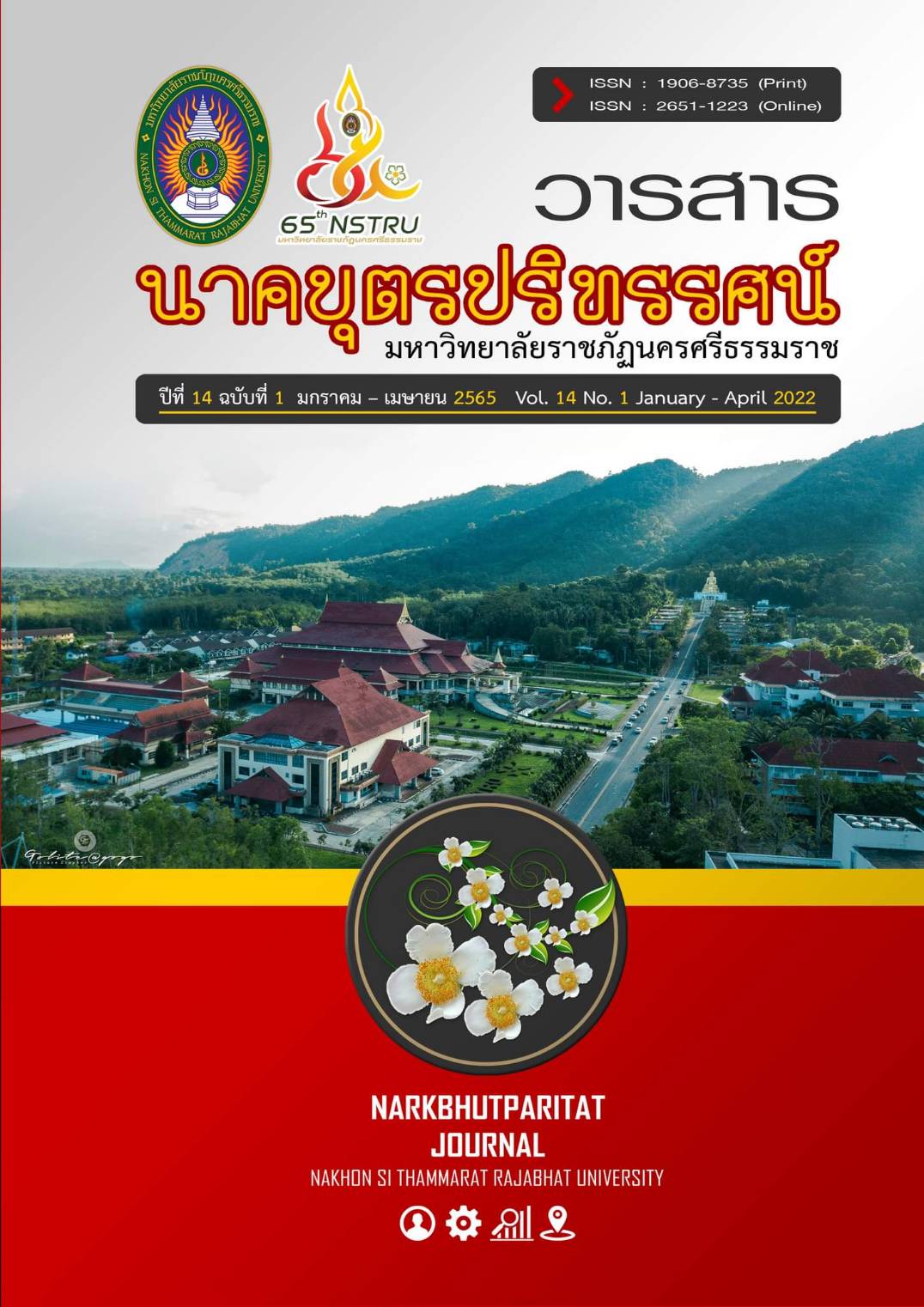พฤติกรรมการเป็นสมาชิกที่ดีขององค์การและความผูกพันต่อองค์การของ บุคลากรสำนักงานพัฒนาที่ดินเขต 12
Main Article Content
บทคัดย่อ
งานวิจัยในครั้งนี้มีวัตถุประสงค์เพื่อ 1) เปรียบเทียบความผูกพันต่อองค์การจำแนกตามปัจจัย ส่วนบุคคลของบุคลากรในสังกัดสำนักงานพัฒนาที่ดินเขต 12 2) เปรียบเทียบพฤติกรรมการเป็นสมาชิกที่ดี ขององค์การจำแนกตามปัจจัยส่วนบุคคลของบุคลากรในสังกัดสำนักงานพัฒนาที่ดินเขต 12 3) ศึกษาความสัมพันธ์ระหว่างความผูกพันต่อองค์การกับพฤติกรรมการเป็นสมาชิกที่ดีขององค์การของบุคลากรในสังกัดสำนักงานพัฒนาที่ดินเขต 12 กลุ่มตัวอย่างได้แก่ บุคลากรในสังกัดสำนักงานพัฒนาที่ดินเขต 12 จำนวน 152 คน เครื่องมือที่ใช้ในการเก็บรวบรวมข้อมูล เป็นแบบสอบถาม วิเคราะห์ข้อมูลโดยใช้โปรแกรมสำเร็จรูป สถิติที่ใช้ ในการวิเคราะห์ข้อมูลได้แก่ ค่าความถี่ ร้อยละ ค่าเฉลี่ย ค่าเบี่ยงเบนมาตรฐาน และค่าสัมประสิทธิ์สหสัมพันธ์ ของเพียร์สัน
ผลการวิจัยพบว่า ผลการวิจัยพบว่า ผู้ตอบแบบสอบถามส่วนใหญ่เป็นเพศหญิง ช่วงอายุ 46 ปีขึ้นไป และสมรสมากที่สุด มีการศึกษาอยู่ในระดับปริญญาตรี มีประสบการณ์ทำงานระหว่าง 5 – 15 ปี ปฏิบัติงาน ในตำแหน่งพนักงานราชการ ส่วนใหญ่ปฏิบัติงานที่สำนักงานพัฒนาที่ดิน เขต 12 และมีเงินเดือนอยู่ระหว่าง 15,001 – 25,000 บาท ความผูกพันต่อองค์การของบุคลากรโดยภาพรวมและรายด้านอยู่ในระดับมาก พฤติกรรมการเป็นสมาชิกที่ดีขององค์การโดยภาพรวมและรายด้านอยู่ในระดับมากเช่นกัน บุคลากรที่มี เพศต่างกันมีความผูกพันต่อองค์การแตกต่างกัน อย่างมีนัยสำคัญทางสถิติที่ระดับ .05 ส่วนบุคลากรที่มีปัจจัยส่วนบุคคลแตกต่างกันมีพฤติกรรมการเป็นสมาชิกที่ดีขององค์การไม่แตกต่างกัน และความผูกพันต่อองค์การ มีความสัมพันธ์กับพฤติกรรมการเป็นสมาชิกที่ดีขององค์การในทางบวกอย่างมีนัยสำคัญทางสถิติที่ระดับ 0.01
Article Details

อนุญาตภายใต้เงื่อนไข Creative Commons Attribution-NonCommercial-NoDerivatives 4.0 International License.
เอกสารอ้างอิง
Hewitt, A. (2017). Aon Hewitt’s Model of Employee Engagement. https://www.aonhewitt.
co.nz/getattachment/77046028-9992-4d77-868a32fbf622fec6/file.aspx?disposition=inline
Blau, P. M. (2017). Exchange and Power in Social Life (2nd ed.). Routledge. https://doi.org/
4324/9780203792643
Eakpanich, L., Yawila, L. & Sittioum, R. (2020). Organizational Citizenship Behavior and Organizational Commitment with Affected to Performance Efficiency of Naresuan University Service Staff. Humanities and Social Sciences Journal of Graduate School, Pibulsongkram Rajabhat University Volume 14 No.1 January-June 2020, 175 – 193. (in Thai)
Kaewkoon, S. (2018). Modern Organization Management with Modern Management. Mahachula Academic Journal Vol.5, 197-208. (in Thai)
Klinsee-ngam, B & Chaikiturajai, P. (2018). Factors influencing the behavior of being good organizational membership and efficiency in the performance of personnel Department of Agriculture Ministry of Agriculture and Cooperatives. Prince of Songkla University Academic Resources Journal. 29(3), 117–131. (in Thai)
Motowidlo, S. J, Borman, W. C. & Schmit, M. J. (1997). A theory of individual differences in task and contextual performance. Human Performance. 10 (2), 71–83
Noknoi, J. (2017). Organizational behavior. Bangkok: Chulalongkorn University Press. (in Thai)
Organ, D. W (1990). The motivational basis of organizational citizenship behavior : In B. M. Staw.,
L. L. Cummigs (Eds.). Reseach in Organization Behavior. Greenwich, CT: JAI Press: 43-72.
Yamane, T. (1967). Statistics an introduction analysis (2nd ed). NY: Harper Row Publisher.


